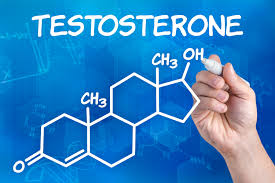Raleigh Hormone Replacement | testosterone therapy | Wilson Bio-Identical hormones
The Top 20 Health Benefits of Testosterone Therapy for Men and Women
1. The cardiovascular benefits of testosterone therapy are numerous. These study authors showed that restoration of natural steroid hormones like testosterone provided a favorable benefit on cholesterol profiles. Cardiologists should consider hormone replacement to provide additional cardiovascular benefits [1] [2].
[1] Dzugan SA, Smith RA. Hypercholesterolemia treatment: a new hypothesis or just an accident? Med Hypothesis. 2002 Dec;59(6):751-6.
[2] Dzugan SA, Smith RA. Broad spectrum restoration in natural steroid hormones as possible treatment for hypercholesterolemia. Bull Urg Rec Med. 2002;3(2):278-84.
2. There is an inverse relationship between testosterone levels and procoagulable factors such as plasminogen activator inhibitor and fibrinogen [3]. Testosterone replacement may help with decreasing coagulation factors.
[3] Anderson RA, Ludlam CA, Wu FC: Haemostatic effects of supraphysiological levels of testosterone in normal men. Thromb Haemost 74:693–697, 1995.
3. There is mounting evidence to suggest that low testosterone levels are associated with increased risk of cerebrovascular disease in men [4].
[4] English KM, Steeds R, Jones TH, Channer KS: Testosterone and coronary heart disease: is there a link? Q J Med 90:787–791, 1997.
4. Optimized testosterone levels have been shown to decrease endothelial resistance and act as a potent vasodilator [5].
[5] Smith AM, Jones RD, Channer KS. The influence of sex hormones on pulmonary vascular reactivity: possible vasodilator therapies for the treatment of pulmonary hypertension. Curr Vasc Pharmacol. 2006 Jan;4(1):9-15.
5. Higher total testosterone and sex-hormone binding globulin levels are inversely related to carotid atherosclerosis in postmenopausal women. This lends evidence to the suggestion that higher testosterone levels may play a major role in reducing atherosclerotic risk in postmenopausal women not using hormone replacement therapy [6].
[6] Golden SH, Maguire A, Ding J, Crouse JR, Cauley JA, Zacur H, Szklo M. Endogenous postmenopausal hormones and carotid atherosclerosis: a case-control study of the atherosclerosis risk in communities cohort. Am J Epidemiol. 2002 Mar 1;155(5):437-45.
6. This study demonstrated that men with higher free testosterone levels had better left ventricular ejection fractions (better cardiac output) [7].
[7] Dobrzycki S, Serwatka W, Nadlewski S, et al. An assessment of correlations between endogenous sex hormone levels and the extensiveness of coronary heart disease and the ejection fraction of the left ventricle in males. J Med Invest. 2003 Aug;50(3-4):162-9.
7. Testosterone is a potent vasodilator and at physiologic concentrations can induce coronary artery dilation and increases coronary blood flow in men with established coronary artery disease [8].
[8] Webb CM, McNeill JG, Hayward CS, Zeigler D, Collins P: Effects of testosterone on coronary vasomotor regulation in men with coronary heart disease. Circulation 100:1690–1696, 1999.
8. Testosterone levels at optimized physiologic levels improve insulin resistance by improving insulin receptor function [9]. This means that testosterone can lower blood glucose levels and improve blood glucose profiles.
[9] Osuna JA, Gomez-Perez R, Arata-Bellabarba G, Villaroel V. Relationship between BMI, total testosterone, sex hormone-binding-globulin, leptin, insulin and insulin resistance in obese men. Arch Androl. 2006 Sep-Oct;52(5):355-61.
9. Men with low free and total testosterone were shown to have higher incidence of hyperinsuinemia [10].
[10] Simon D, Charles MA, Nahoul K, Orssaud G, Kremski J, Hully V, Joubert E, Papoz L, Eschwege E: Association between plasma total testosterone and cardiovascular risk factors in healthy adult men: the Telecom Study. J Clin Endocrinol Metab 82:682–685, 1997.
10. Optimized physiological levels of testosterone improved erectile dysfunction in men [11].
[11] Carrier S, Zvara P, Lue TF. Erectile dysfunction. Endocrinol Metab Clin North Am. 1994;23:773-782.
11. Low physiological levels of testosterone are an independent risk factor for developing Alzheimer’s Disease [12].
[12] Hogervorst E, Bandelow S, Combrinck M, Smith AD. Low free testosterone is an independent risk factor for Alzheimer’s disease. Exp Gerontol. 2004 Nov-Dec;39(11-12):1633-9.
12. Optimized levels of testosterone prevent osteoporosis in men by increasing bone mineral density (BMD) [13] [13a] [13b][13c]. In women, testosterone with estradiol in combination showed dramatic improvements in bone mass after one year of therapy [13d][13e].
[13] Winters, SJ. Current Status of Testosterone Replacement Therapy in Men. Arch Fam Med. 1999;8:257-263.
[13a] Vondracek, SF; Hansen, LB. Current Approaches to the Management of Osteoporosis in Men. Am J Health-Syst Pharm 61(17):1801-1811, 2004. © 2004 American Society of Health-System Pharmacists.
[13b] Isidori AM, Giannetta E, Greco EA, Gianfrilli D, Bonifacio V, Isidori A, Lenzi A, Fabbri A. Effects of testosterone on body composition, bone metabolism and serum lipid profile in middle-aged men: a meta-analysis. Clin Endocrinol (Oxf). 2005 Sep;63(3):280-93.
[13c] Osteoporosis and Low Bone Mineral Density in Men with Testosterone Deficiency Syndrome. Sex Med Rev. 2015 Oct;3(4):298-315. doi: 10.1002/smrj.63. Epub 2015 Nov 10.
[13d] Increase in bone mass after one year of percutaneous oestradiol and testosterone implants in post-menopausal women who have previously received long-term oral oestrogens. BJOG: An International Journal of Obstetrics & Gynaecology, 99: 757–760.
[13e] Savvas M, Studd JW, Fogelman I, Dooley M, Montgomery J, Murby B. Skeletal effects of oral oestrogen compared with subcutaneous oestrogen and testosterone in postmenopausal women. BMJ : British Medical Journal. 1988;297(6644):331-333.
13. This article in the prestigious New England Journal of Medicine showed that optimized testosterone levels (via transdermal patch) improved sexual function in women after oophorectomy and hysterectomy [14].
[14] Shifren JL, Braunstein GD, Simon JA, Casson PR, Buster JE, Redmond GP, Burki RE, Ginsburg ES, Rosen RC, Leiblum SR, Caramelli KE, Mazer NA. Transdermal testosterone treatment in women with impaired sexual function after oophorectomy. N Engl J Med. 2000 Sep 7;343(10):682-8.
14. Optimized testosterone levels in males increases muscle mass [15]. Physiologic testosterone levels also maintain strength and bone mass [16].
[15] Abrams D. Use of androgens in patients who have HIV/AIDS: what we know about the effect of androgens on wasting and lipodystrophy. AIDS Read. 2001 Mar;11(3):149-56.
[16] Mooradian AD, Morley JE, Korenman SG. Biological actions of androgens. Endocr Rev. 1987;8:1-28.
15. Low total testosterone levels are associated with increased BMI and diabetes [17].
[17] Osuna JA, Gomez-Perez R, Arata-Bellabarba G, Villaroel V. Relationship between BMI, total testosterone, sex hormone-binding-globulin, leptin, insulin and insulin resistance in obese men. Arch Androl. 2006 Sep-Oct;52(5):355-61.
16. In elderly men, testosterone supplementation increases human growth hormone (HGH) production. HGH is a super-hormone that plays a vital role in regulating body composition, production of body fluids, muscle and bone growth and fat metabolism [18].
[18] Veldhuis JD, Keenan DM, Mielke K, Miles JM, Bowers CY. Testosterone supplementation in healthy older men drives GH and IGF-I secretion without potentiating peptidyl secretagogue efficacy. Eur J Endocrinol. 2005 Oct;153(4):577-86.
17. Wound Healing. Optimized testosterone levels can improve wound healing especially in the elderly [19] [20].
[19] Demling RH. The role of anabolic hormones for wound healing in catabolic States. J Burns Wounds. 2005 Jan 17;4:e2.
[20] Hardman MJ, Ashcroft GS. Hormonal influences on wound healing: a review of current experimental data. WOUNDS. 2005;17(11):313-320.
18. Improved Cognition. Optimized levels of testosterone until death can improve cognition, maintain a better affect, and allow for better thinking and processing skills [21].
[21] Muller M; Aleman A; Grobbee DE; de Haan EH; van der Schouw YT. Endogenous sex hormone levels and cognitive function in aging men: is there an optimal level? Neurology. 2005; 64(5):866-71 (ISSN: 1526-632X).
19. Testosterone has shown a significant neuroprotective role in hypogonadal men with improvements in Alzheimer’s disease, MS, Huntington’s disease and Parkinson’s disease. [22][23][24][25].
[22] Bialek M, Zaremba P, Borowicz KK, Czuczwar SJ. Neuroprotective role of testosterone in the nervous system. Pol J Pharmacol. 2004 Sep-Oct;56(5):509-18.
[23] Reported by By Karla Gale. Testosterone May Slow Progress of MS in Men. Reuters Health Information 2006. © 2006 Reuters Ltd. [online] Available on Medscape® at www.medscape.com/viewarticle/529199.
[24] Markianos M; Panas M; Kalfakis N; Vassilopoulos D. Plasma testosterone in male patients with Huntington’s disease: relations to severity of illness and dementia. Ann Neurol. 2005; 57(4):520-5 (ISSN: 0364-5134).
[25] Moffat SD. Effects of testosterone on cognitive and brain aging in elderly men. Ann N Y Acad Sci. 2005; 1055:80-92 (ISSN: 0077-8923).
20. Vaginal or vulvovaginal atrophy is a widespread but poorly recognized condition of peri- and post-menopausal women. Vaginal or vulvovaginal atrophy is a widespread but poorly recognized condition of peri- and post-menopausal women. Testosterone replacement therapy is an effective treatement and preventative therapy for vulvovaginal atrophy [26].
[26] Treatment of vaginal atrophy. Health (Lond). 2014 Mar;10(2):191-200. doi: 10.2217/whe.14.9. Review.


